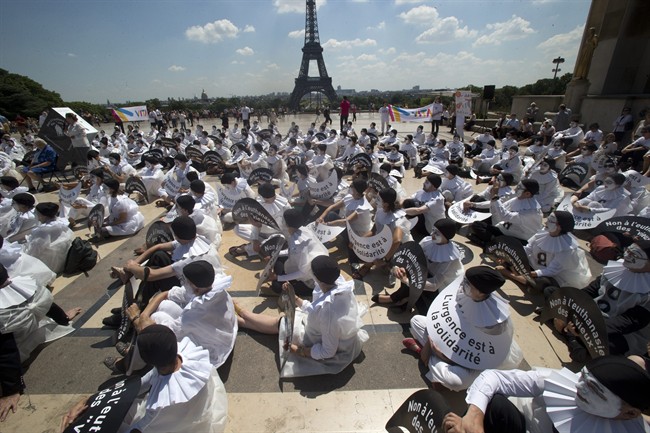PARIS – A European court ordered French doctors to continue treatment for a comatose patient while Britain’s Supreme Court on Wednesday said that a ban on assisted suicide was incompatible with human rights, raising new questions about who decides a person is beyond treatment.

The British decision was unexpectedly far-reaching. Although it dismissed the appeal from two severely disabled men who argued the law should be changed to allow doctors to legally kill them, the ruling suggested that Parliament change the law to be in line with human rights guarantees.
In southern France, meanwhile, a verdict was expected later in the poisoning trial of a physician who gave lethal injections to help seven terminally ill patients die.
Dr. Nicolas Bonnemaison faces up to life in prison. The verdict is expected Wednesday. Several relatives of his alleged victims have testified on his behalf, and a petition signed by over 66,000 people calls for his acquittal.
Euthanasia is currently legal in the Netherlands, Belgium and Luxembourg. The French president has said he hopes to make it easier for terminally ill patients to seek medical help to end their lives.
The case of the comatose Frenchman has drawn national attention, in part because his family is divided on his treatment and his parents fear his wife will take him to Belgium to die.
France’s top administrative court on Tuesday said doctors could withhold food and hydration for Vincent Lambert, saying he had made his wishes clear before the car accident six years ago that left him hospitalized. That decision was overruled hours later by the European Court of Human Rights in a highly unusual late-night decision.
“He is not sick, he is not at the end of his life, he is not suffering,” Jean Paillot, a lawyer for Lambert’s parents, told BFM television on Wednesday. “From our perspective, there is no reason to stop feeding or hydrating him.”
The Lambert case has echoes of the legal fight over Terri Schiavo, a Florida woman who suffered brain damage in 1990 when her heart stopped, and she entered what doctors refer to as a “persistent vegetative state,” or prolonged coma. She died in 2005 after her husband won a protracted court case with Schiavo’s parents to have her feeding tube
In Britain, five of the nine judges concluded that the country’s ban on assisted suicide is incompatible with the right to private life, suggesting British politicians should amend the law to be in line with the human rights guaranteed under the European Convention.
One of the men, Paul Lamb, is paralyzed following a car accident. The other, Tony Nicklinson, died of pneumonia in 2012, but the case has been taken over by his widow.
—
Associated Press writer Maria Cheng contributed from London.

Comments